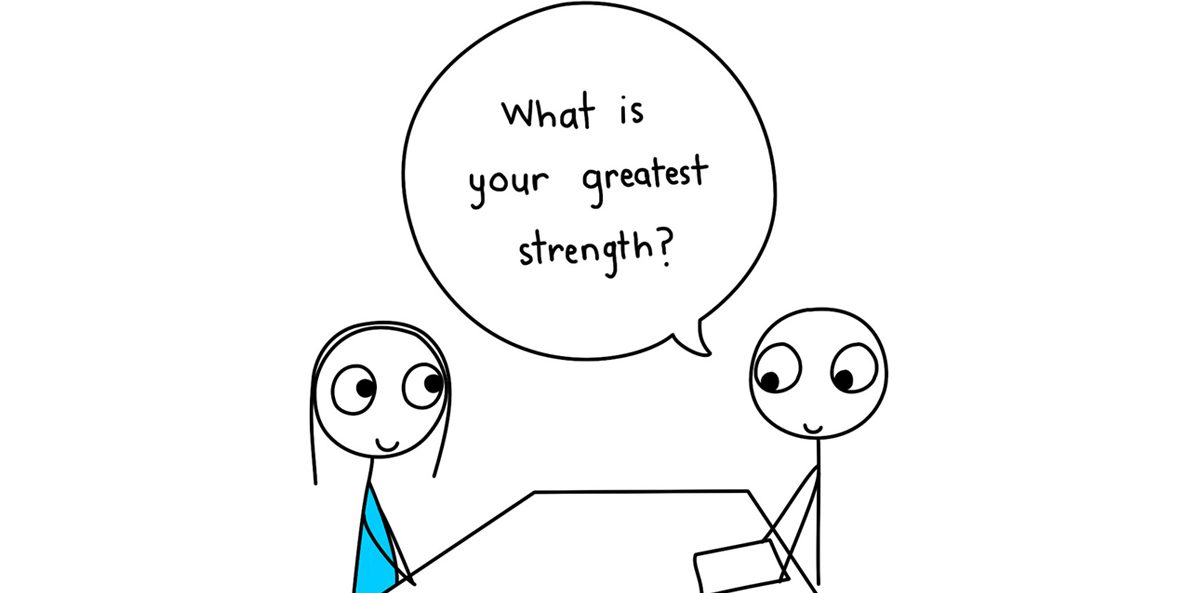Boards needs to know what to ask candidates. Prospective Executive Directors need to know how to prepare for their interviews. Here’s some advice for both.
In 1997, I became the Executive Director of GLAAD. When I think back to my job interview, I kind of have to laugh.
Some EDs get the job after years working as a senior fundraiser or in some other nonprofit leadership position. Not me.
I came to it from corporate America. While I was strong on strategy, communications, and dealing with people, I had no fundraising experience whatsoever. Somehow the board overlooked that. The staff wasn’t so thrilled, but that’s a different story.
Like most interviews, there were two main parts.
First, the board asked a bunch of good questions, which I answered as best I could. Then, I had an opportunity to ask them questions. I like to think I also asked some good ones.
It was a strong interview. Executive Director interviews better be. After all, you are hiring for the most important position at your nonprofit! You have to get this right.
To be clear, when I say Executive Director, I mean the staff leader. You might call that person the CEO or President or Head of Schools or whatever.
Over the past year, I’ve coached several gifted individuals who interviewed for ED positions and I can tell you that many nonprofits handle these interviews poorly. They don’t ask the right questions or they don’t really know what they’re looking for.
Frankly, it’s not surprising. Usually board members conduct ED interviews but most of them aren’t professional HR people and have never gotten training. How should they know what to ask?
And so it’s also not surprising that two questions I get asked a lot are:
- From boards: What are good interview questions for Executive Directors?
- From candidates: Can you help me get ready for an Executive Director interview?
Let’s tackle both.
GETTING READY FOR THE INTERVIEW
This first section is to help candidates get prepared. If you’re the one doing the interviewing, feel free to skip below directly to the questions you should be asking.
If you’re still with me, there are two things I want you to do in advance of your interview.
1. Write the Announcement of Your Hire
This will help you figure out how you want to position yourself in the context of what will please the board.
Think about it. Hiring an Executive Director is the most important decision a board makes. And when your hire is announced, the board wants to look good. They want the community your organization serves, its volunteers and donors to see that they rocked the search.
So draft the statement they will send out. It doesn’t need to be perfect (and in fact it won’t be.) There will be holes. That’s fine.
Don’t forget to include a quote you would love to see in your announcement from the board chair or maybe even the previous ED.
After you draft, make some notes. What made you smile? What made you proud? What do you wish was stronger? What do you see as gaps?
2. Figure Out Your Key Messaging
I’ve had the benefit of media training (something I would highly recommend for any nonprofit leader – and you can often find someone in your community who will do it pro bono or has been trained who can spend a few hours with you.)
As you prepare for any interview, regardless of length and regardless of what questions you are asked, what are the 3-4 main things you want the listener to remember about you?
Yes – regardless of the questions asked.
You need to control the interview and the key messages you want the search committee to remember.
What do you want them to remember? To know? To feel? To think?
EXECUTIVE DIRECTOR INTERVIEW QUESTIONS
Now we get to the heart of it – the questions themselves. These are the 10 questions every search committee should ask Executive Director candidates — and the 10 questions every candidate should be prepared to answer.
So first the question, and then my advice on how to prepare for the answer…
1. Tell us why you want to lead this organization.
How to answer:
Well, you better nail this one. It’s the single most important question. Take the announcement exercise from above and build on that. It should mirror the core messages from your cover letter – the ones that got you to the interview.
Here’s what you want that search committee to feel:
- Goosebumps
- Gravitas
- Commitment
2. Offer your assessment of the programs and services of our organization.
How to answer:
Here you need to demonstrate strategic and critical thinking and work ethic.
As an interviewer, I want to know that you work hard and did a LOT of homework about the organization – and more than just looking through the website (though you’d better do that too.)
How you answer will tell me about how you approach strategy and how you will talk about possible program flaws. We all know nothing is perfect – I’d like to see if you have the chutzpah to point something out.
Quick advice here: don’t be completely sold on your own assessment. That can be read as arrogance. Sometimes using questions can be a useful device here. Instead, you can try, “Maybe this isn’t the right point in the interview to ask but I did find myself wondering….”
3. What do you believe is the key to successful fundraising? Tell us a story from your experience that represents that.
How to answer:
Let me remind you that when I was hired as an ED I had zero fundraising experience. It doesn’t matter.
The way to handle this question whether you are experienced with fundraising or not is to actually answer a slightly different question:
What do you believe fundraising is all about?
I answered this question with humor. I said it’s about storytelling and relationship building and commitment. Tie those together with something from your past. Being blunt, if you can’t come up with one or more examples, you might not be cut out for this job.
4. How will you balance the inside / outside element of your role?
How to answer:
Acknowledge that it won’t be easy – that everyone will want a bite of the ED apple. As the interviewer, I want to hear about how you control your time, how you manage your calendar. I watch E.D. clients do it all the time. The calendar controls them and not the other way around.
5. If I took one of your current direct reports out for coffee to get the real skinny on you, what would s/he say?
How to answer:
Speak the truth here. They will find out, which is why I like the question.
I’m hoping to hear phrases like, “more like a thought partner than a boss.” I’d like to hear “accessible,” “regular meetings that are both tactical and big picture.” I am anxious to know about how you deliver feedback – what’s working and what could be working better.
Personally, I also want to hear words like “fun” and “joyful.” But maybe that’s just me.
6. What do you see as the role and value of the board in your success as an Executive Director? Can you offer us a few examples?
How to answer:
In order for the organization to be successful, this relationship must be a partnership. The best nonprofit is like a twin engine jet and the ED and the board chair should have a co-piloting relationship understanding of course that ultimately the ED reports to the board.
I know that I definitely want to hear that you get that you have to ‘feed’ the board in order for it to do its job well – information, tools, access to stories, etc.
7. Executive Directors often find themselves “working the room” – at a gala, a cocktail party, or at some other kind of community event. What is your approach?
How to answer:
It could be interesting to answer this by talking about an experience you had at a fundraiser. Maybe no one came up to you. Maybe you had an ED stare past you while supposedly engaged in conversation because he’s looking for the person he actually wants to be talking to.
You also want to tell me that you find people interesting – I always say that everyone is interesting for at least 2 minutes J. Share your approach to spending the right amount of time with one person so you make a connection before you move on.
8. Tell me about a professional failure you experienced and what you learned from it.
How to answer:
Think about this one ahead of time. It can’t be a small one that feels inconsequential. And the lesson must be pretty powerful.
Go back to the “key messaging” you did before your interview. Ideally your answer should amplify your three or four key messages.
9. As an Executive Director, you will be both a leader and a manager. How do you see these roles intersecting?
How to answer:
This might feel like a duplicate of #4 but I would use this question as a way to talk about the opportunity — and responsibility — of leadership and what kind of leader you will be.
I want to hear the reverence you feel about the responsibility. I want to the answer to this question to be VERY eloquent. When you are finished talking, I want to be ready to follow you.
10. It’s six months into your tenure. How will we know we made a great hire?
How to answer:
It depends a bit on where the organization is on its success path when you start. Do NOT overpromise here. Shoot for some tangibles and some intangibles. Your list could include:
- Board meetings that are informative and engaging and where board members’ opinions are valued
- Clear facility with the numbers, understanding the budget
- First hire is proving to be a rock star
- You moved someone out of the organization without oodles of drama
- You asked and closed X amount of gifts
- Great buzz after a major donor fundraiser about your remarks
- An unsolicited call from a key stakeholder just to congratulate a board member on making a great hire
- Clear evidence of relationship building in all key stakeholder groups
- Several suggestions for new board members that would add real value to the work of the organization
Also, suggest that you would like to have a formal conversation with the board chair at the six-month mark to talk about this very question rather than waiting for the one-year mark. A car runs better for a long drive with regular tune-ups.
A BONUS QUESTION
So those are the 10 questions every search committee should ask, and my 2 cents on how every candidate should approach their answers.
But most of the time you get asked one last open-ended question…
What else should we know about you?
Or
Is there anything else you would like to tell us?
Do not screw up your answer to this. This question is a layup! If you answer with, “No, I don’t think so,” you missed out on one big fat opportunity.
Your goal is to prepare and practice a closing statement. Clearly it cannot sound either prepared or rehearsed. It will be the last thing they hear from you and it should be 2-3 minutes that wraps up your core messages.
Do NOT include the words, “as I mentioned earlier.” You don’t want to remind me that you might have said this before.
If the messages can be wrapped into a compelling short anecdote – powerful, funny, “goosebumpy”, all the better.
It should not really be about you – not really. Rather, it should be about what the organization and its clients and stakeholders need. What the movement demands from this organization and why you are the right person to deliver it.
WHAT SHOULD CANDIDATES ASK THE SEARCH COMMITTEE?
Ok, so I’ve gone over the 10 questions. And then a bonus question.
But there’s still one more question most people get asked toward the end of an interview:
Is there anything you’d like to ask us about the organization? The staff? Our programs? Working here? Anything at all?
You could have aced the interview up to this point, but if your answer here is, “Not really,” you have just left a really poor last impression. Think you’ll get the job?
I have a LOT to write on the questions candidates should ask their interviewers and that will be the subject of an upcoming post.
I’ll notify all of my email subscribers when the next post is published. If you haven’t already subscribed, I’d love for you to do so here.
See you again soon!




Do you have any articles about how to position yourself professionally to become an executive director? I’m looking for some guidance/advice as to what type of experience I should be building that will get me at least to the interview stage for an ED job.
I was a “co-director” of a non-profit a number of years ago. I have also extensively volunteered in my community (for 44years!). I have noticed a real shift that began perhaps 15 years ago: “It used to be a few ‘staff with name tags’ and a bunch of volunteers; now it is more lots of staff and fewer volunteers. When you get paid to do something, you tend to get more comfortable with the status quo. Do you think there is something to this?
Carrie. A few thing quickly come to mind. Volunteer and show some stability and longevity with a particular organization you care about personally. Raise some money for a cause. And the best experience of all is to join a board. These are the things I look for when i guide folks interested in nonprofit leadership. Hope that helps.
Hobomatt. Interesting observation – not sure I agree. In my experience it is the very group of people who raise their hand and apply for nonprofit jobs that are LEAST comfortable with the status quo. That said, I do believe that as organizations grow and become more staff driven, they can be less scrappy. They might budget for something because there are funds rather than seek out pro bono or in kind work from outside the organization. Thanks for weighing in!
My experience in the last few years has been with agencies that serve the homeless population here in Colorado Springs. It seems we used to welcome new ideas and were interested in what other communities have accomplished. Now, if it doesn’t fit into the “Continuum of Care” or what HUD is funding next year, there isn’t much interest in exploring other cities successes. ” Mission Creep” is pretty apparent as well. The dynamics strike me as not being unlike the defence industry. Below is a chart – I don’t remember the source but it DOES seem to be spot on. You can put every non-profit somewhere on that continuum. Believe it or not, we have a group that has not strayed from the beginning in over 40 years!
Hi — I am looking for the follow up to the above article that will address questions candidates should be asking. Can you help me out? Thanks!
Any articles for ‘the second interview’ re: CEO position at non-profit